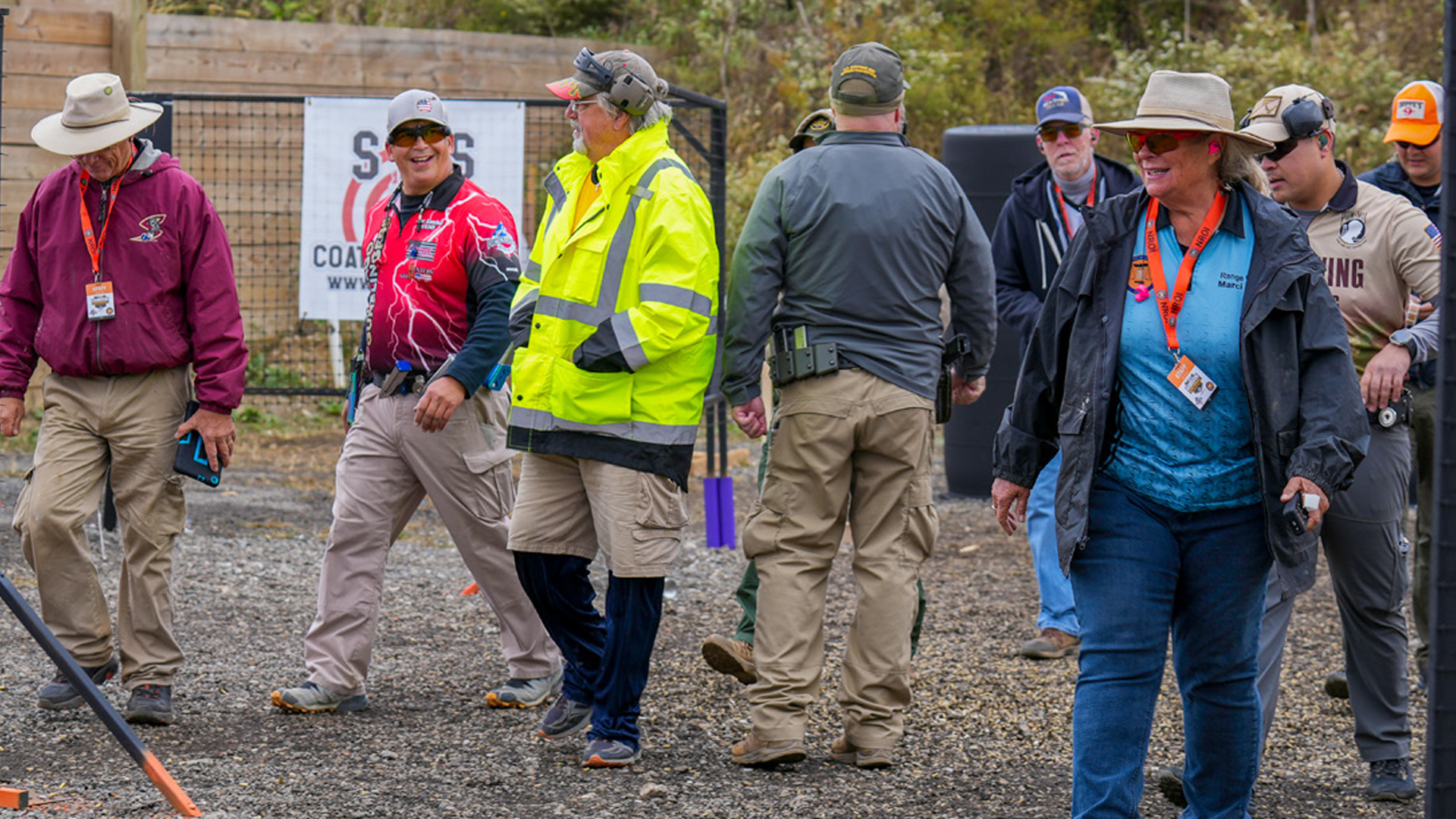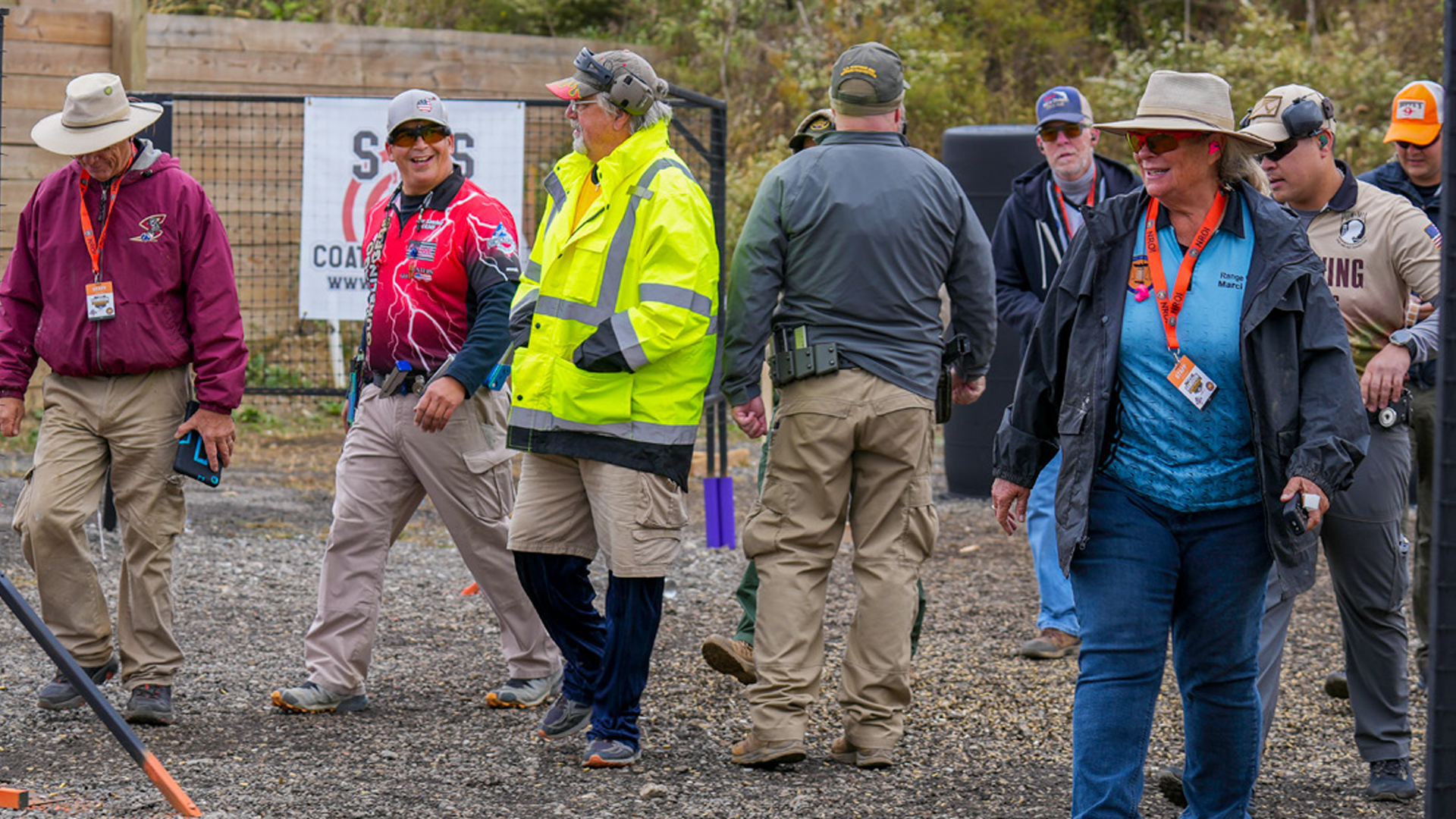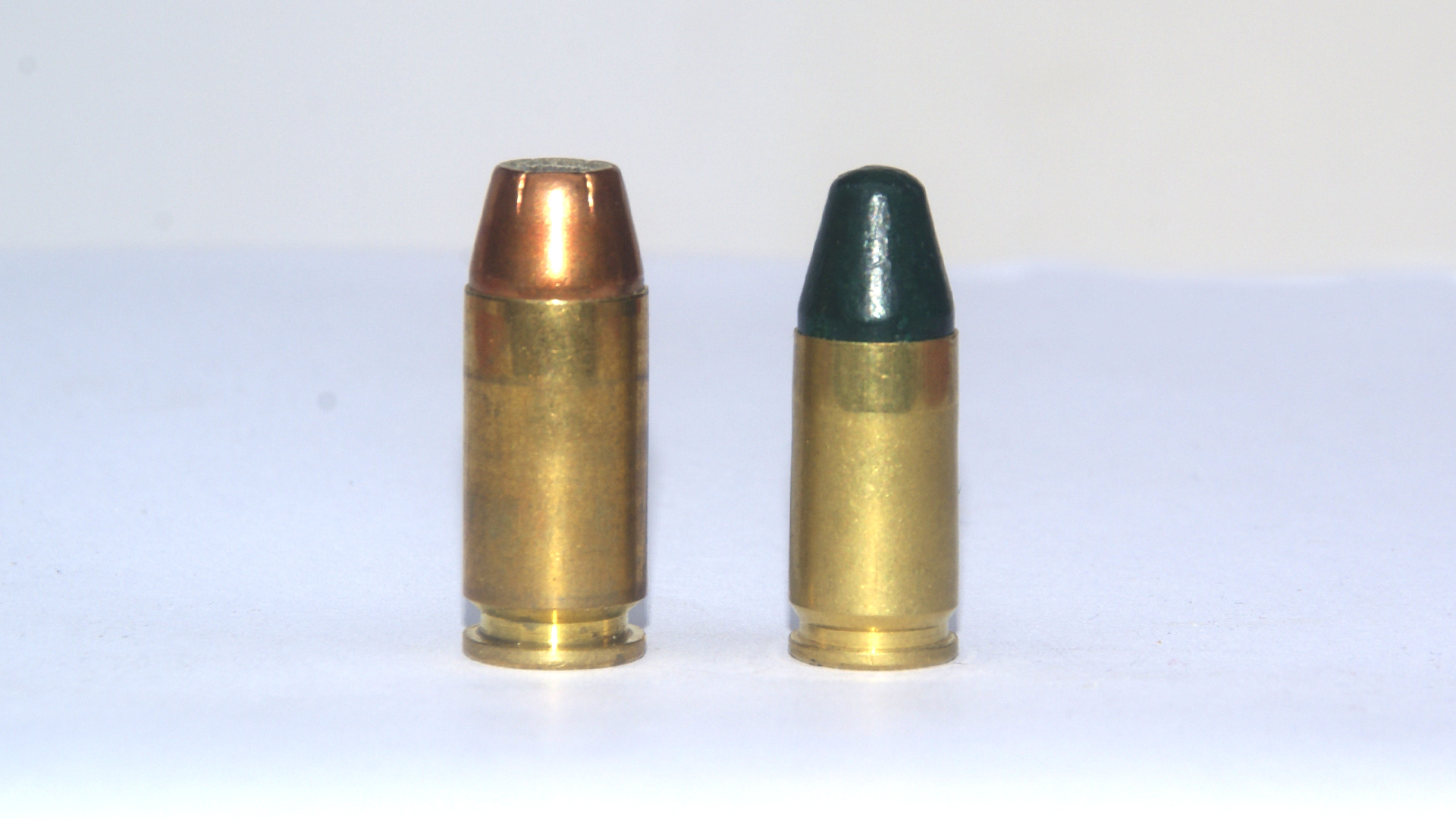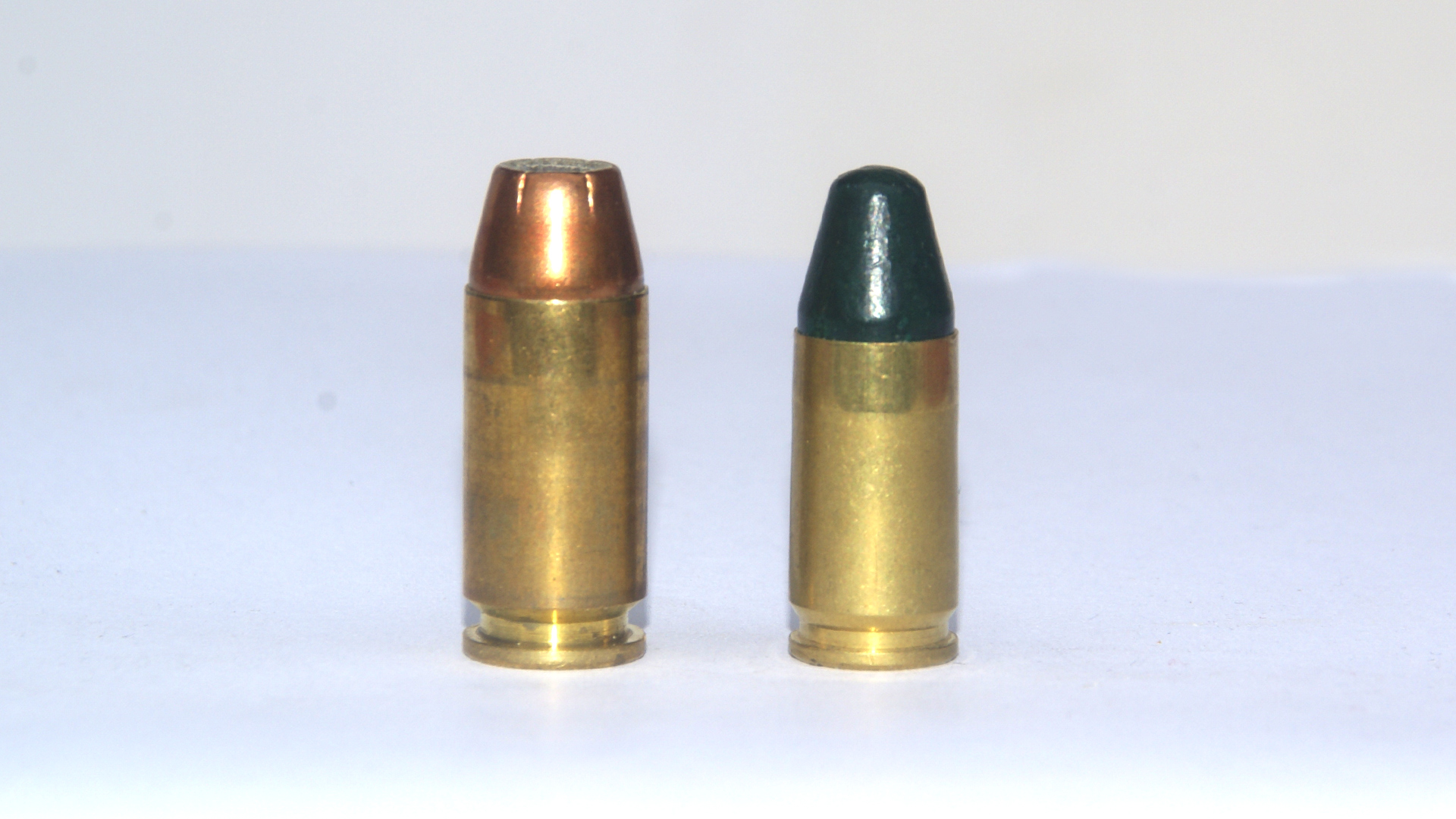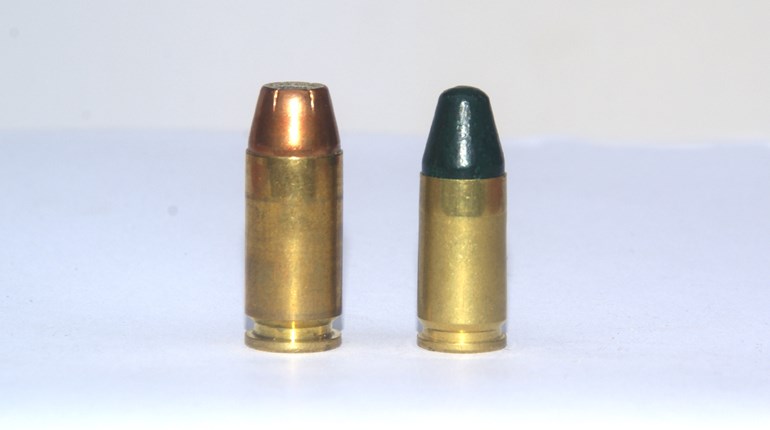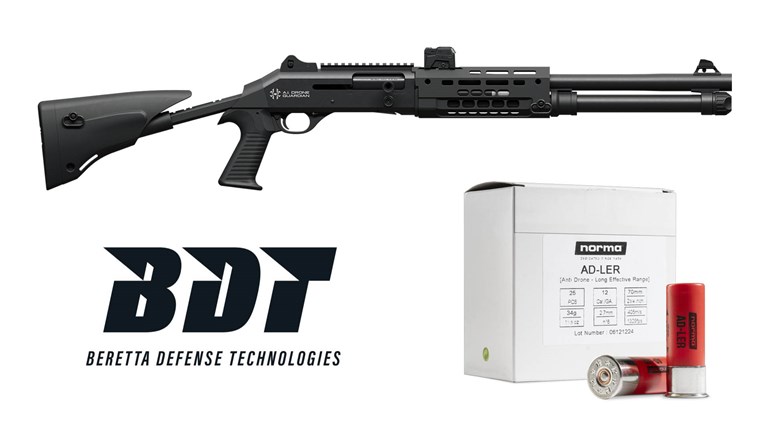
I must admit that I missed the boat on Canik handguns over the last few years. Up until today, I had not shot any of the Canik handguns. I have, of course, seen them at matches and handled them at SHOT Show, but never fired one—that is, until I got the latest handgun, the SFx Rival-S. I was very impressed with this handgun, so I wanted to find out a little more about Canik.
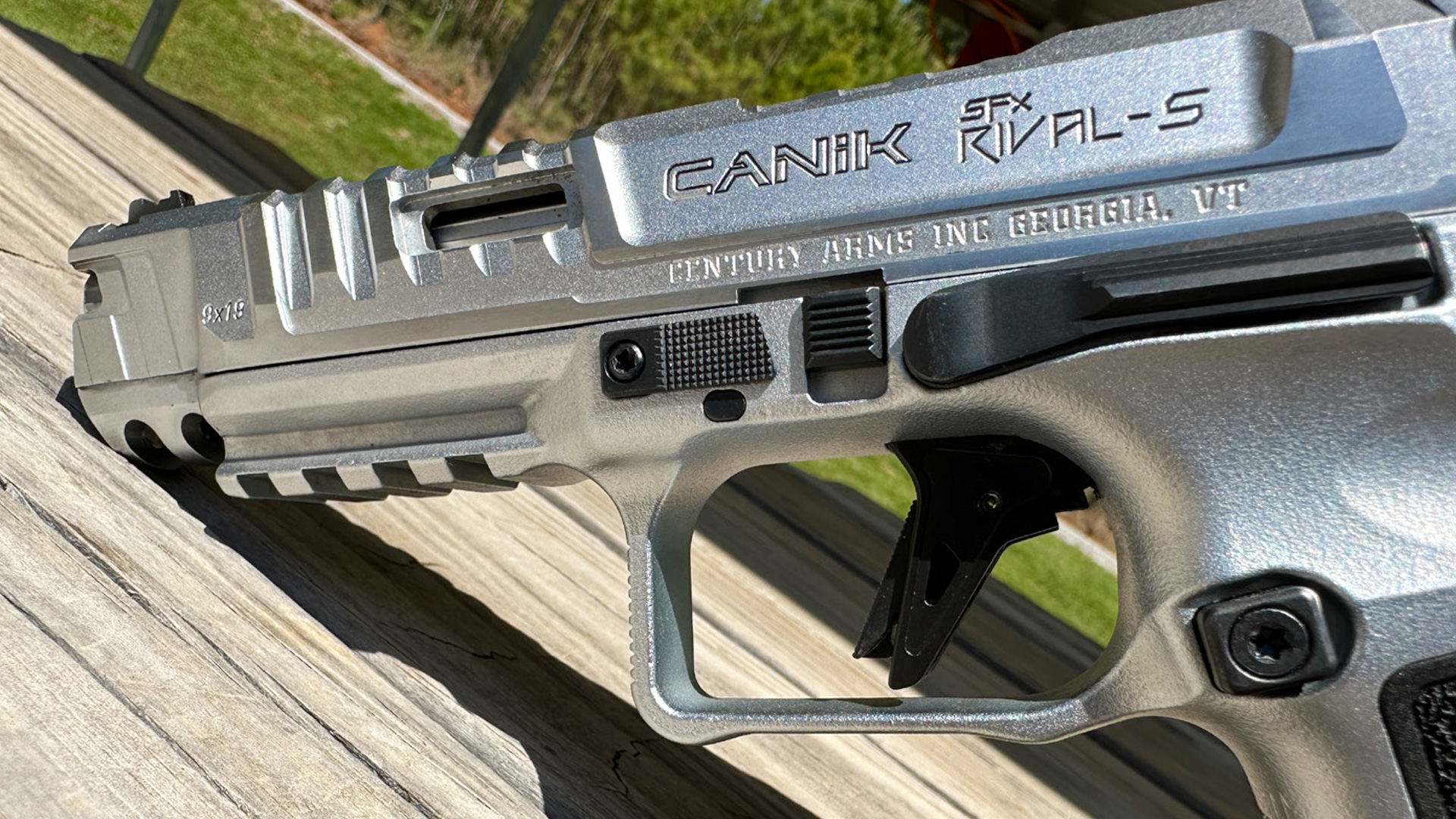
The manufacturing company takes its name from the mountain bearing its name, Canik, a name that means “a place of refuge” in old Turkish. Canik, which is based in Turkey under the Samsun Yurt Savunma (SYS company), has been producing handguns and other firearms for more than 14 years. Canik has also been a significant player in the aerospace defense industry for more than two decades. The aerospace expertise led to partnerships with Lockheed Martin, Airbus and Boeing, and from there it enabled the company to develop a high-quality polymer handgun.
That was the beginning of the TP series of handguns that were adopted by Turkish Law Enforcement. In 2012, Canik partnered with Century Arms to introduce the Canik TP pistols into the US market. There are the Canik TP series and the Mete series of pistols. Canik currently offers several variants of the TP line of handguns, including the TP9SXF and some signature creations. These were followed up by the SFx Rival. All of these pistols are polymer-framed and striker-fired.
The TP9SXF and SFx Rival have become popular in competition for their affordable pricing, excellent out-of-the-box triggers and ergonomics. It also doesn’t hurt that their show pony Nils Jonasson has managed to win just about every match he has shot in the last couple of years with one of these handguns, either. Nils was winning matches before he became Canik’s Pro Shooter, but here is the thing—he didn’t stop winning matches after he stopped shooting custom built 2011s and 1911s. He continued to win, using new guns from a rather new manufacturer with a name you can probably guess.
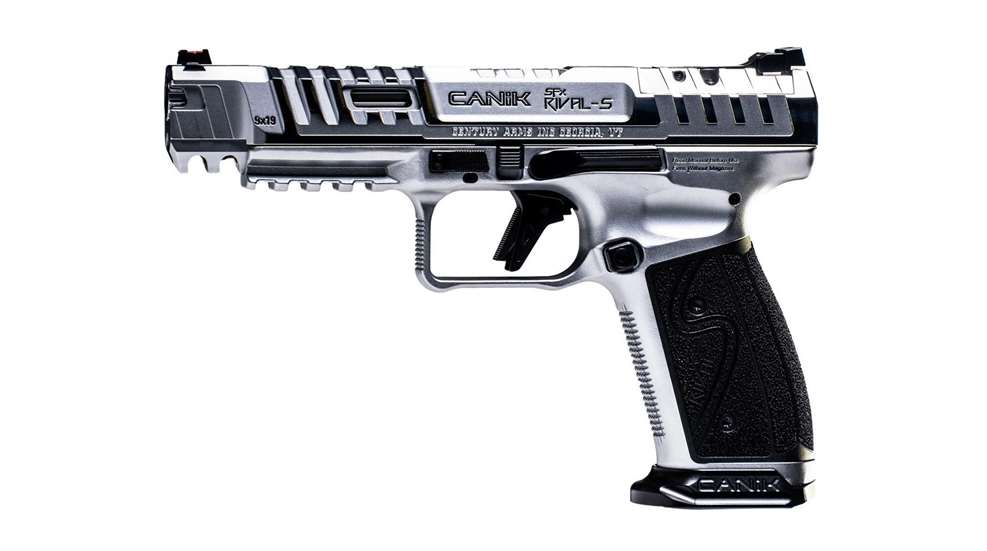
Building off the success of the other SFx pistols, Canik introduced the new Rival-S with an all-steel frame. The gun comes in a bright chrome or all black (Dark Side) models that are optics-ready. Both are also offered with optic, the MO2, installed. The gun slide is taking full advantage of Canik’s expertise in CNC machining. The slide features window cuts, serrations and lightening ports. The machining and detail in the slide are amazing. The details from muzzle to the rear of the slide, the top, every inch of it will have you looking at it. The muzzle has somewhat of a Hi-Power cut, but with serrations and additional porting. The lines flow into the front serrations that run from side to side across the top of the slide. The top of the slide is flat with a long lightening port between the front sight and the barrel hood. The left side of the slide has a long panel cut with the Canik SFx Rival-S logo engraved. The rear portion of the slide also has serrations on both sides and across the top. This section is removable to allow optics to be mounted. The barrel hood has matching serrations and the barrel itself is fluted.
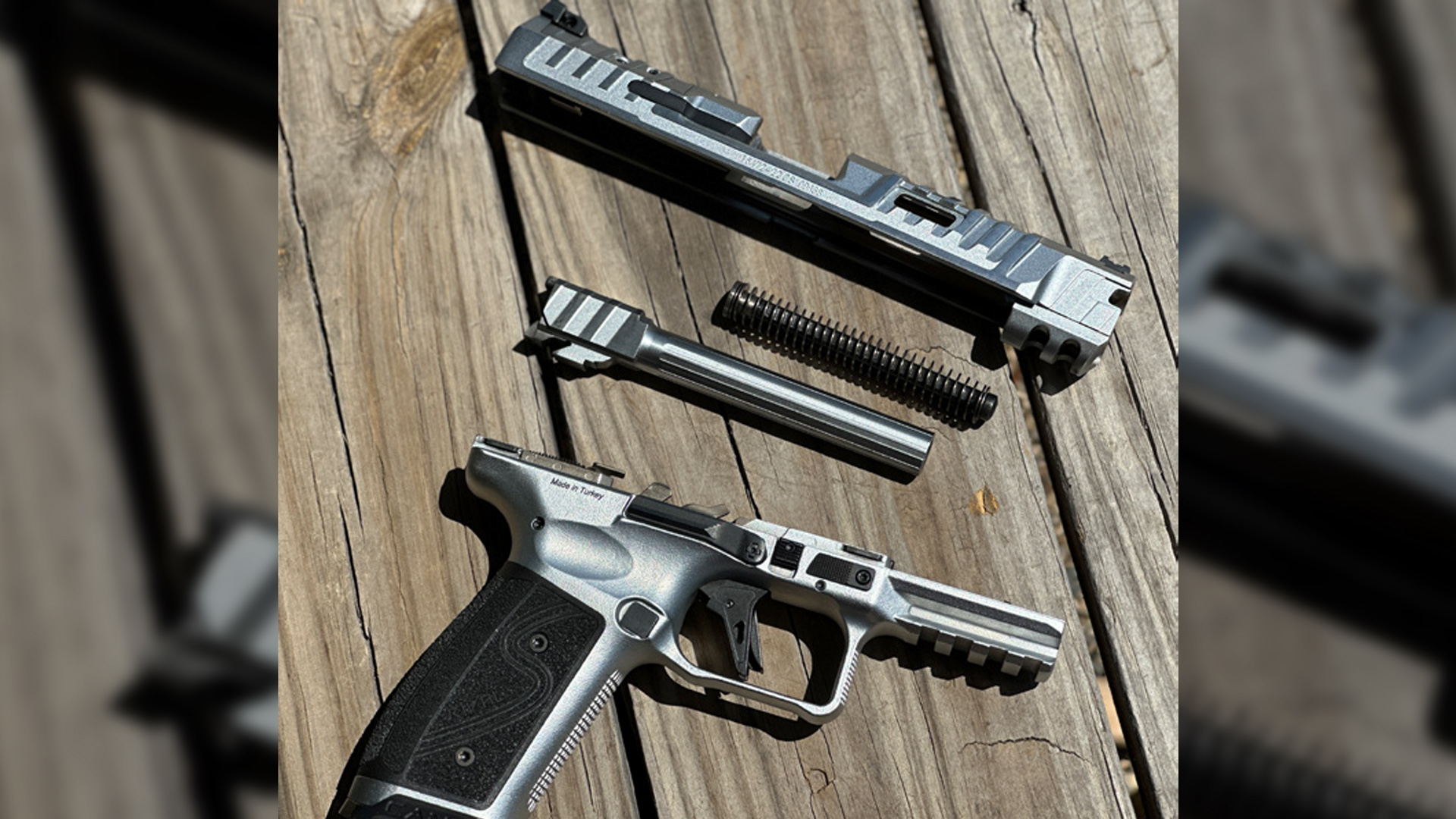
All of the controls on the SFx Rival-S are ambidextrous. The slide release is easy to access, but not intrusive so as to be accidently hit when shooting. The magazine release is a square that is tapped to add a button. On either side of the slide there are forward indexing points for support thumb or trigger finger. The steel frame also has nice relief cuts on both sides and an undercut trigger guard. The front strap is nice and wide with checkering. The trigger guard is squared with checkering on the front as well. The grip insert is interchangeable and the firearm comes with three options. The texture on the grip insert is nice and grippy and provides a secure hold. The Canik SFx Rival-S comes with a metal competition magwell installed, but it is removable to be Carry Optics and Production division legal, or left in place to shoot Limited, the provisional Limited Optics or, if you’re Nils, Open division—because why not, right?
Let’s talk about the trigger. It is nice. It is quite nice, actually. Ten pulls on the Wheeler Digital Scale were an average of two pounds, 9.1 ounces from the box. The trigger is a 90-degrees aluminum flat trigger with a nice wide trigger face. The trigger safety is finely serrated and has a positive feel when engaging it. There is minimal take up to the solid wall, then a crisp break with a slight amount of overtravel. There is a nice positive short reset. The trigger is a home run. I have messed with lots of factory and aftermarket striker-fired triggers over the last four years, this is the nicest out-of-the-box, striker-fired trigger I have played with. Not just the weight and reset, but the overall width and the feeling of the actual face of the trigger itself is great.
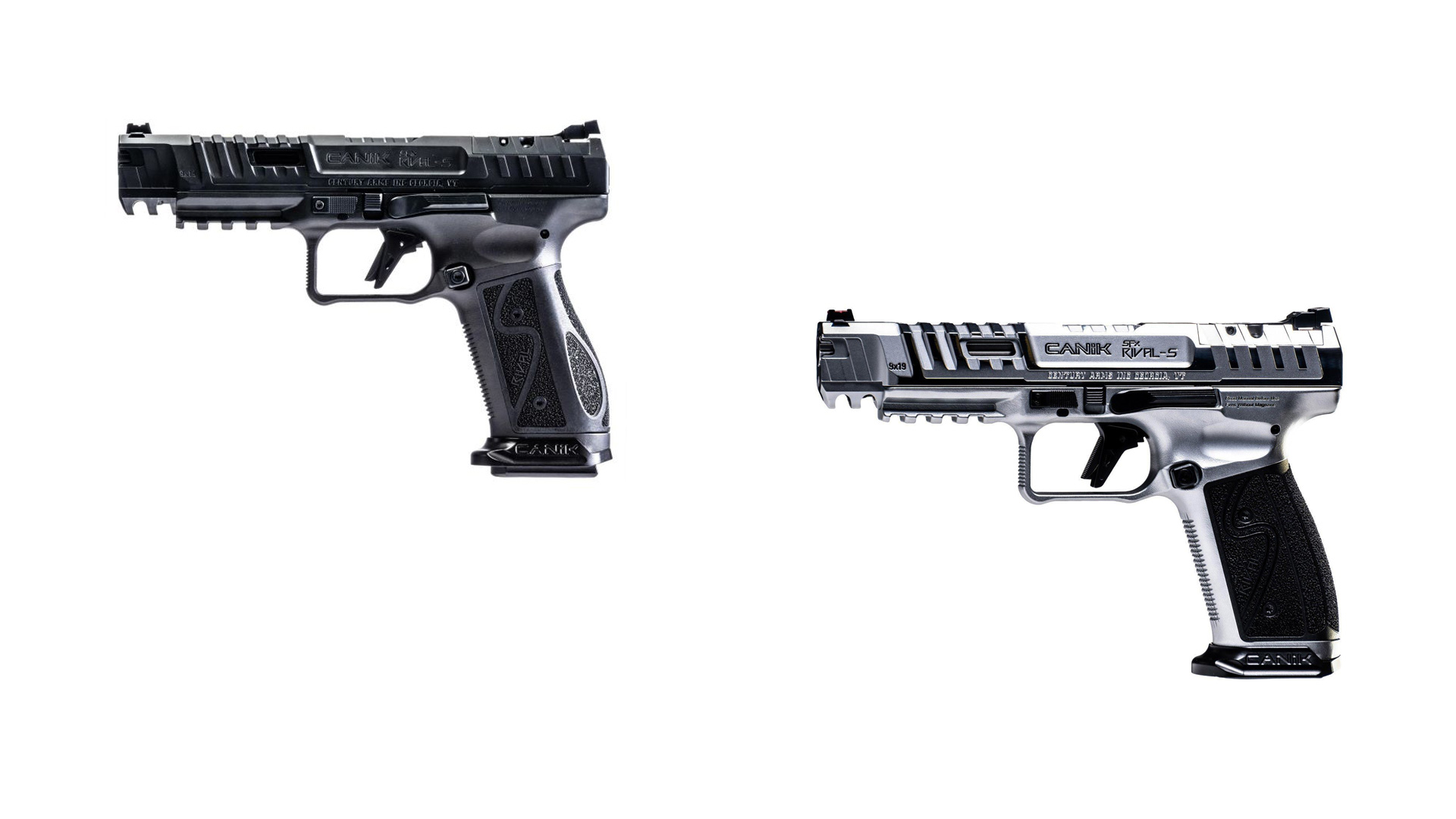
The gun comes in a large airtight hard-sided case. It ships with two 18-round magazines. The overall length is 8.09 inches with a five-inch barrel. The height is 5.75 inches and it is 1.41 inches wide. Unloaded weight is right at 43 ounces. Also, in the case are several optics plates, a plastic holster with belt attachment and two thicker baseplates. The optic plates should get you what you need for most of the popular footprints. There is also a tool included for removing the rear section of the slide for the optics. The rear sight is serrated and adjustable for windage and elevation. It is paired with a fiber-optic front sight shipped with a red rod installed. The guide rod is steel with a flat wire recoil spring. It appears that there are some different aftermarket guide rods available that should allow changing of recoil springs.
The gun feels great and looks great, but how does it shoot? There wasn’t an extended range session with this gun, unfortunately, but I was able to run several different 9 mm loads through it to get a feel for the gun. There were no issues using the factory magazines that were shipped with the gun or the two Canik 18-round mags I picked up that had plus-two basepads. These worked with the installed magazine well. I didn’t have time to mount an optic before heading to the range so all shooting was performed old-school with iron sights. I ran approximately 200 rounds of different ammunition including 124-grain Magtech, 147-grain Eley Remanufactured, 147-grain Precision Delta Remanufactured, 150-grain Federal Syntech and 124-grain Eley Competition. All shooting was basically function-fire and not group shooting. However, I was shooting at about 15 yards on a reduced-size 1/3 IPSC steel target and had no issues keeping almost all the rounds on the steel. I may have yanked a few low left—it happens.
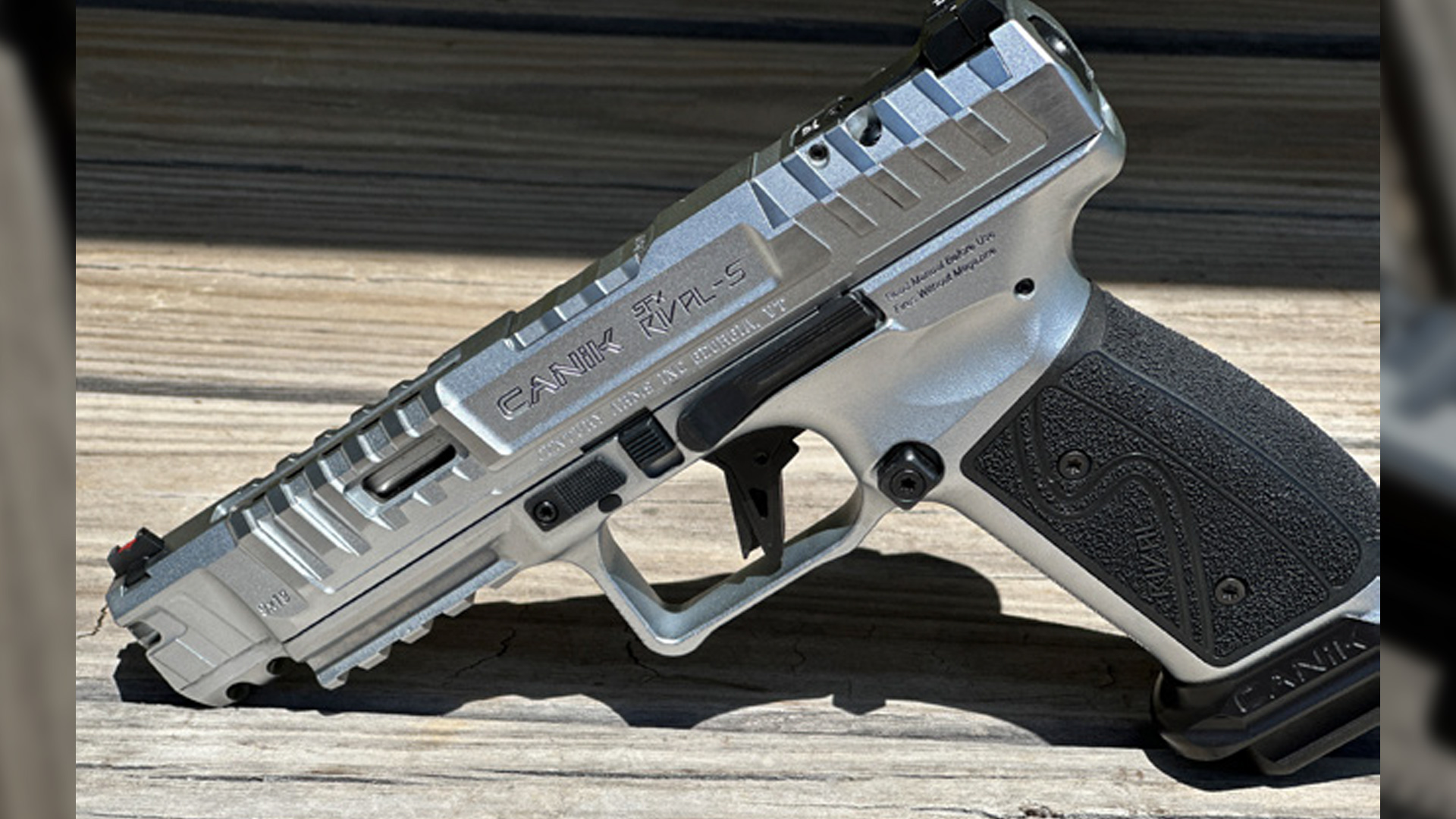
At the World Speed Shooting Championship, there was a last minute opportunity to jump in on a squad and shoot. I borrowed some magazines and Nils Jonasson's holster and shot the gun in Production and Limited divisions. I took the magwell off the gun to be legal in Production, as it follows the same rules as USPSA in regards to handgun divisions. The minimum round count to shoot all eight stages in two divisions is 390, but there were several “extra” shots on the stages. After the initial shooting and the WSSC match I was well more than 600 rounds, probably closer to 700. This was straight from the box to the range with the Canik. I used the two magazines it shipped with, two factory magazines with plus-two pads and two of the magazines Nils let me borrow. I shot several different rounds of ammunition during the WSSC with zero issues.
The heavy weight of the gun and overall ergonomics, as well as the excellent trigger, made this a fun gun to shoot. Canik has a competition-heavy hitter with the SFx Rival-S, especially starting at $899.99 MSRP for the Dark Side and $949.99 for the chrome variant. The gun is well built with minimum slide play in the fit, the trigger is sweet and the overall appearance of the gun, with all the details in the slide, make it stand out from the pack. Check out the SFx Rival-S and other Canik firearms and accessories at canikusa.com.
Article from the May/June 2023 issue of USPSA’s magazine.

